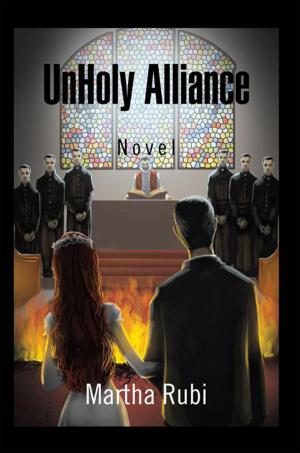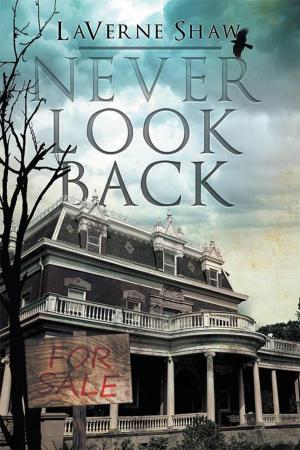| Author: | William Vincent | ISBN: | 9781543421125 |
| Publisher: | Xlibris US | Publication: | May 16, 2017 |
| Imprint: | Xlibris US | Language: | English |
| Author: | William Vincent |
| ISBN: | 9781543421125 |
| Publisher: | Xlibris US |
| Publication: | May 16, 2017 |
| Imprint: | Xlibris US |
| Language: | English |
The drama Lincoln and Booth (a dual tragedy) retellswith some fictional detail, of coursethe story of Abe Lincoln, a hardworking man of humble upbringing and a man of moral turpitude who shies from the egotistical, and of John Wilkes Booth, a man quite the opposite of Lincoln, a man of bombast and inflated moral principle based upon genetic or on bloodline vanity, leading to his ultimate dissolution and megalomania. The play spans from the opening scenes of the biblical ironies surrounding the advent of the Lincoln era in politics all the way to the final assassination and escape of the Shakespearean megalomaniac Booth, who throughout, by the way, employs his deluded and disillusioned Shakespearean reasoning with great epigonal or bombastic conclusiveness while all the way, irony surely plays him all around and ever onward into his mad conviction that he is Brutus come again and Dixies savior. In between both Wilkes and Abe is Edwin Booth, the great Northern actor (as his demented brother sees him, i.e., for his having formalized (too much) the style of acting away from Wilkes more wild, emotional style, generally labeled too Southern by Edwin. Wilkes is ever taking on Edwin as a threat and someone he wishes to prove the lesser for both the betrayal of their southern roots (in acting) and of Dixie as well, especially of Maryland, Oh, Maryland a song Booth ever hums or sings out like a political fanatic. The play ends not in Garretts Barn but (in a dream) on the deck of the USS Levant, where Booth meets Philip Nolan, in the fog, on the deck. Yes, Philip Nolan in the Man Without a Country, a book by Everett Hale, a book Booth had read in his recent days. The sets need not be elaborate since this one, like Shakespeare plays themselves, requires little, for it relies on the language, which Booth himself, as well as Lincolnno less and admirer of the Bardbring to the fore of attention, making all extravagant scenery an option. Most necessary as a set piece, however, is the large, full-body mirror in the center stage that serves both as a swinging door from the realm of one White House room to another, as well as a conduit into the others prescience (at first) and later full consciousness, and thru which both protagonist and antagonist speak unknowingly, right at one another, the while more so engaged in monologues to themselves and yet directing other lines more poignantly at their adversary, who likewise happens to be at his own mirror, prepping and primping and worse, imagining the ominous or oppressive other. Both Lincoln and Booth begin within their individual personas as characters in the real play of their lives and wind up, through the vicissitudes of the times and the pressures of political warfare, taking assumed characters (unconsciously and yet not without their true natures), which brought them both to the catastrophe of their tragic fates within this drama or play of their real livesa fact that amazed me during or later on in my research for this work. William Vincent, author If there is any staging or adaptational interest in this script or in any others I have as yet been unable to publish, I wrote myself into poverty in the love and the belief in them. Please visit www.beggarmuse@ yahoo. com for a list and/or discussions or arrangements. Leave a message.
The drama Lincoln and Booth (a dual tragedy) retellswith some fictional detail, of coursethe story of Abe Lincoln, a hardworking man of humble upbringing and a man of moral turpitude who shies from the egotistical, and of John Wilkes Booth, a man quite the opposite of Lincoln, a man of bombast and inflated moral principle based upon genetic or on bloodline vanity, leading to his ultimate dissolution and megalomania. The play spans from the opening scenes of the biblical ironies surrounding the advent of the Lincoln era in politics all the way to the final assassination and escape of the Shakespearean megalomaniac Booth, who throughout, by the way, employs his deluded and disillusioned Shakespearean reasoning with great epigonal or bombastic conclusiveness while all the way, irony surely plays him all around and ever onward into his mad conviction that he is Brutus come again and Dixies savior. In between both Wilkes and Abe is Edwin Booth, the great Northern actor (as his demented brother sees him, i.e., for his having formalized (too much) the style of acting away from Wilkes more wild, emotional style, generally labeled too Southern by Edwin. Wilkes is ever taking on Edwin as a threat and someone he wishes to prove the lesser for both the betrayal of their southern roots (in acting) and of Dixie as well, especially of Maryland, Oh, Maryland a song Booth ever hums or sings out like a political fanatic. The play ends not in Garretts Barn but (in a dream) on the deck of the USS Levant, where Booth meets Philip Nolan, in the fog, on the deck. Yes, Philip Nolan in the Man Without a Country, a book by Everett Hale, a book Booth had read in his recent days. The sets need not be elaborate since this one, like Shakespeare plays themselves, requires little, for it relies on the language, which Booth himself, as well as Lincolnno less and admirer of the Bardbring to the fore of attention, making all extravagant scenery an option. Most necessary as a set piece, however, is the large, full-body mirror in the center stage that serves both as a swinging door from the realm of one White House room to another, as well as a conduit into the others prescience (at first) and later full consciousness, and thru which both protagonist and antagonist speak unknowingly, right at one another, the while more so engaged in monologues to themselves and yet directing other lines more poignantly at their adversary, who likewise happens to be at his own mirror, prepping and primping and worse, imagining the ominous or oppressive other. Both Lincoln and Booth begin within their individual personas as characters in the real play of their lives and wind up, through the vicissitudes of the times and the pressures of political warfare, taking assumed characters (unconsciously and yet not without their true natures), which brought them both to the catastrophe of their tragic fates within this drama or play of their real livesa fact that amazed me during or later on in my research for this work. William Vincent, author If there is any staging or adaptational interest in this script or in any others I have as yet been unable to publish, I wrote myself into poverty in the love and the belief in them. Please visit www.beggarmuse@ yahoo. com for a list and/or discussions or arrangements. Leave a message.















